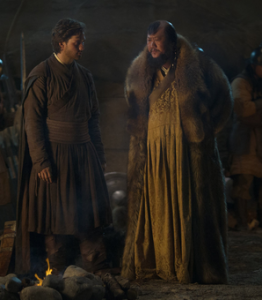Back in 2000, a little-known entrepreneur named Reed Hastings approached Blockbuster with a partnership proposal for the company he was trying to build. With Blockbuster at the top of the video-rental game at this time, they balked at the offer, forcing Hastings to make his own way in the dangerous world of entrepreneurship. Yet Blockbuster would learn to regret their decision, as sales at the company soon began to falter, while Hastings’ company, Netflix, became wildly successful. Within 10 years, it was clear that Blockbuster was going the way of the dodo. Netflix has remained successful, even getting into producing their own TV shows, some of which, such as “House of Cards” and “Orange is the New Black”, have achieved major acclaim from critics and consumers alike. One of the reasons that Netflix original series have been so successful is because they’ve been able to do their research effectively and see what kind of shows will be popular.
One new Netflix original series coming out is “Marco Polo”, set to be released on December 12. It’s clear that the series, set to a medieval backdrop, is trying to follow the success of one of the most successful TV shows of all time, “Game of Thrones”. The show’s first season, 10 episodes in all, cost $90 million to make, making it one of the most expensive shows in TV’s history. Yet, according to reviews, the show is terrible. Critics have described the show as having all of the gratuitous nudity and excessive violence that characterizes “Game of Thrones”, yet none of the depth. It’s clear, they say, that in an effort to appeal to the largest possible audience, they succeeded in creating something that would appeal to nobody.
On paper, the creation of a “Marco Polo” show is a great idea. Netflix has been smart to invest money in creating unique content. While they’ve been doing well, they’ve begun to face stiff competition from rival networks, such as Amazon, HBO and FX, that are starting to limit content to their own video streaming channels. So, if more and more networks create their own channels, and less content goes to Netflix, then there won’t be anything left to attract customers. They’ve been wildly successful with this before, with smash hits that have attracted a huge amount of traffic to the site. The problem with “Marco Polo”, however, is that they relied too much on data.
When Netflix committed $100 million to two seasons of “House of Cards”, they hadn’t even seen a pilot for the series. According to their data, Kevin Spacey as an actor, combined with David Fincher as a director, would be a massive success, so they didn’t think they needed to. And they were right. Netflix used the same model to green light four other shows that they produced in the past few years, all of which were successful shows. However, “Marco Polo” followed a different path, as the series was originally created for Starz before Netflix bought it following various issues. Yet this decision was more a data-driven one as opposed to a creative one. Looking at the success of “Game of Thrones”, it made sense to pick up a show that shared its epic scope, Medieval setting, political intrigue and bare skin. And, coincidentally enough, they picked a show about Asia at around the same time that they’ve been trying to expand into the Asian market.
So while “Marco Polo” makes a lot of sense on paper, it doesn’t always come down to data. No matter how good of an idea something sounds, if it isn’t properly executed, then it simply won’t work. Of course, it seems a little harsh to rag on Netflix for just one bad show, since they’ve done so many other great things. And despite “Marco Polo” being a flop with critics, it still could be pretty popular. Yet there’s an interesting business lesson to be taken from this. While big data is the future, and decisions should be data-based, relying exclusively on data is a dangerous move.
